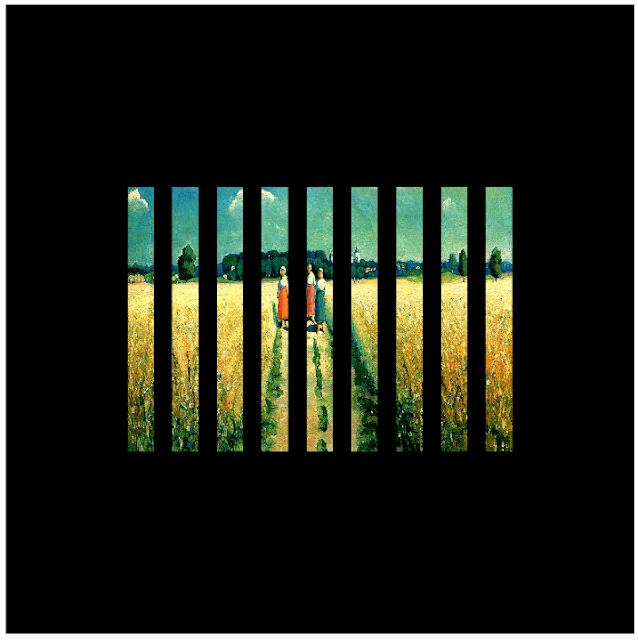DSGA Video with Narration
DSGA Video with Narration
https://digsup.my.canva.site/dsga-web
https://chambersarts.godaddysites.com/
Tom R. Chambers is a visual artist, and he is currently working with the pixel as Suprematist/Geometric Abstractionist Art ("Pixelscapes") and Kazimir Malevich's "Black Square" ("Black Square Interpretations"). His "My Dear Malevich" project has received international acclaim, and it was shown as a part of the "Suprematism Infinity: Reflections, Interpretations, Explorations" exhibition in conjunction with the "100 Years of Suprematism" conference at the Atrium Gallery, Harriman Institute, Columbia University, New York City (2015).
During the early 2000s, Chambers began to look at the pixel within the context of Suprematist/Geometric Abstractionist Art. He equated the pixel with the works of non-objective artists like Wassily Kandinsky, Kazimir Malevich, Josef Albers, Barnett Newman, Mark Rothko, Ad Reinhardt, Piet Mondrian and others. They generated works to establish an abstract visual language of the sublime, pure color, geometric form, deep contemplation and metaphysical pursuit of the truth.
The pixels or "Pixelscapes" - as he calls them - conform with many of these non-objective artists' works. They are a revelation for him when compared to these non-objective works generated many years before the pixel and Digital Revolution.
This body of work is derived from pixel configurations, and they stem from digitized reproductions of Kazimir Malevich's early works prior to his Suprematism and “Black Square”. They are magnified, filtered and precisely isolated to provide geometric abstractions within color-field settings.
These "Pixelscapes" are brought to the forefront to celebrate Malevich's latent and ultimate creativity which gave way to Suprematism with the display of "Black Square" and other works in 1915 as part of the Last Futurist Exhibition of Paintings 0,10.
These pixel configurations are brought out large-scale. This method not only conjures up Suprematism, Geometric Abstraction, Minimalism and Color-field for consideration, but also calls forth emotions, feelings, and responses in the viewer.
They have a geometrical advantage due to their inherent, quadrilateral formatting. In combination, they provide grids, planes and juxtapositions of color. And the color scheme is in situ (natural), because of the source image.
JD Jarvis, Art Critic/Artist and coauthor of Going Digital: The Practice and Vision of Digital Artists (ISBN 1-59200-918-2) (USA):
"Tom R. Chambers has been experimenting for several years with his series of 'Pixelscapes' exhibitions. Utilizing the most basic unit of any computer graphic, the single pixel, his 'Pixelscapes' serve as colorful pathways into the purely metaphysical aspects of art which, by virtue of presenting so little, leads the viewer to so much in terms of their own emotional content. This visual poetry contains the ironic connection between Modernist philosophy which moved visual art from figurative representational pictures of the physical world into an expressive and emotional world of abstraction; and the digital realm in which the purely abstract unit of one pixel off - one pixel on, has been utilized to reproduce once again, with breath taking accuracy the physical world. Now, Chambers has shown a path by which this tool, which so often serves hyper-reality, is forced to reveal the abstract soul at its very core."
One Month Gallery (OMG) curators, Moscow (Russia):
“Tom R. Chambers is a Texan with a Russian, Suprematist soul. He has repeatedly introduced the modern trend of new media art to the masses. He has brought Minimalism to the pixel. In 2000, Chambers began to look at the pixel in the context of Abstraction and Minimalism. And he is currently working with interpretations of Kazimir Malevich’s 'Black Square' and other Suprematist forms. His work calls our attention to visual singularity, which is all that we see in the digital universe. Since the pixel corresponds to what we call 'subatomic particles' in our physical universe, Chambers’ work connects us directly with the feeling of Russian Suprematism, described as the spirit that pervades everything, and pays tribute to the faith in the ability of abstraction to convey net feeling in the work.”


Comments
Post a Comment